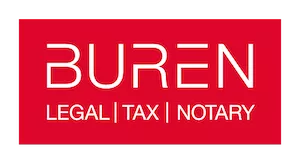- within Technology topic(s)
- with readers working within the Utilities industries
- within Privacy and International Law topic(s)
The Bureau for Investment Screening (Bureau Toetsing Investeringen, "BTI") recently updated its guideline 'Being active in sensitive technology' that focuses on when a company is considered as being active in the field of sensitive technology.
The BTI guideline is part of the series to provide clarification regarding the scope of the Investments, Mergers and Acquisitions Security Test Act (Wet veiligheidstoets, investeringen, fusies en overnames, also referred to as "Vifo Act"). The Vifo Act applies to investments, mergers and acquisitions into companies that are active in (highly) sensitive technology, operators of corporate campuses or vital infrastructure providers in The Netherlands. Any investment into such companies needs to be notified to the BTI. The BTI is responsible for the substantive screening of these investment activities. In our practice most notifications involve investments in companies that are active in sensitive technology.
The original guideline dates from 2023 and has been updated following the most recent experiences and insights. The updated guideline contains:
I. Further clarification of the definition of "being active
in sensitive technology"
II. Explanation on designated categories of sensitive
technology
I. Further clarification of the definition of "being active in sensitive technology"
The Vifo Act defines "sensitive technology" as (1) dual-use products as included in inter alia the Dual Use Regulation and (2) military products as referred in the EU Common Military List. Further decrees may define the scope of the definition. Up until now, one such decreeapplies, Decree on the Scope of Application of Sensitive Technology, which we summarized in our earlier alert and anotherdecree is in the making.
The updated guideline of the definition of "being active in sensitive technology" contains the following clarifications:
A company is considered being active in the field of sensitive technology if it conducts research operations or develops, processes or manufactures products for commercial use. Production of semifinished products that do not qualify as a dual-use or military goods will not be considered as being active in the field of sensitive technology and falls outside the scope of the Vifo Act. Investments into such companies do not need to be notified to the BTI.
A company that purchases a semifinished product from a supplier, which product qualifies as a dual-use or military goods or a product of a (highly sensitive) technology as defined in the Vifo Act, and subsequently processes or installs such product in a final product without using the technical knowledge required for the production of a semifinished product or end product respectively, is not considered to be active in the field of sensitive technology within the meaning of the Vifo Act. However, if that processing or installation involves substantial modifications to the semifinished or sensitive technological product, or if it is unlocked or integrated into other products or objects in such a way that, during the processing or installation, the architecture of that certain product becomes visible or the technical specifications of the goods become known to that processor, then that processor is active in the field of the sensitive technology. In such cases, an investment into companies will need to be notified to the BTI.
Practice experience
In our recent M&A work, BUREN advised exactly with respect to
such examples, one transaction with respect to a company that works
with biological materials and one transaction with respect to a
software company utilizing VPN and encryption technology. In both
cases, the decisive factor for the applicability of the Vifo Act
was whether the company had actual access to and knowledge of the
underlying sensitive technology. This requires thorough analysis
and understanding of the business. In our experience, the BTI is
open to informal exchange of views on a no-name basis.
II. Designated categories of sensitive technology
The updated guideline also provides further explanation regarding the designated sensitive technologies which correspond to the categories as included in the Decree on the Scope of Application of Sensitive Technology. This includes the following:
- Photonics technology (AST 2) - companies that are active in the field of photonics by developing, processing, producing, or incorporating products based on this technology into semifinished or finished products, or conducting research on them with a view for commercial exploitation, falls within the scope of the Vifo Act. These finished products can be consumer products such as displays, cameras, telephones, internet connections, solar panels, and lighting, as well as specific military products, such as night vision goggles or various types of sensors for security applications. Spectroscopy using light waves for medical purposes also falls under photonics.
- Semiconductor technology (AST 3) - companies with specific, in-house expertise in chip manufacturing, industrial chip manufacturing machinery, and chip design software. This includes MEMS (micro-electromechanical systems) which is the technology of microscopic devices that contain both electronic and moving parts. They usually consist of a central unit that processes data (an integrated circuit chip such as a microprocessor) and various components that interact with the environment (such as microsensors).
- High Assurance technology (AST 4) - companies fabricating products as included on the list of security products evaluated by the Resilience Unit of the General Intelligence and Security Service (Algemene Inlichtingen- en Veiligheidsdienst, "AIVD") are considered as being active in the field of High Assurance technology. This does not apply to the list of BPSA evaluated products from the AIVD.
Conclusion
The guideline on 'Being active in sensitive technology' – or the other guidelines – may be amended and updated by BTI from time to time based on changing insights, developments in the market / technology or as a result of amended regulations.
If you have any questions regarding the Vifo Act or require assistance with filing a BTI notification, or deciding whether such notification is required, please contact Friederike Henke, Susanna Tang, Anniek Edzes Koerts or any of the other BUREN specialists of our Corporate department.
The content of this article is intended to provide a general guide to the subject matter. Specialist advice should be sought about your specific circumstances.




